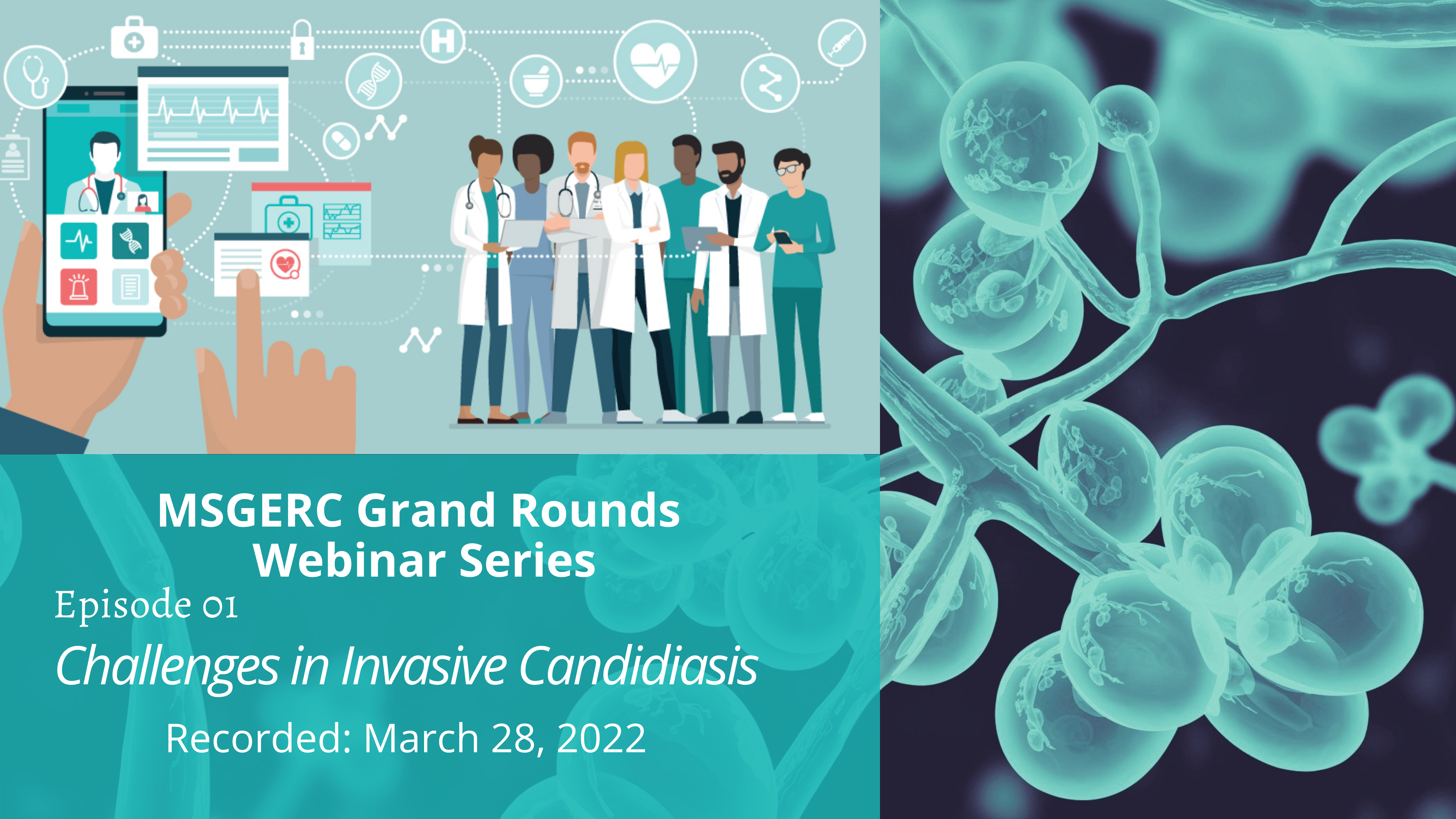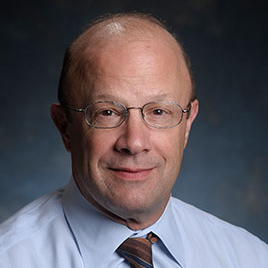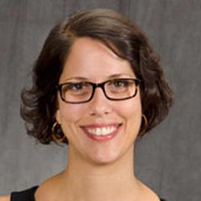
MSGERC Grand Rounds: Challenges in Invasive Candidiasis Archived Version
Watch the first archived MSGERC Grand Rounds webinar. In this episode, Drs Peter Pappas and Brenda Tesini discuss challenges in the management of invasive candidiasis. Using a case-based approach, they explore topics such as diagnosis, choice of therapy, and antifungal resistance.
This educational initiative was funded in part by a cooperative agreement with the Centers for Disease Control and Prevention (CDC-RFA-CK20-2003) to the University of Alabama at Birmingham. The University of Alabama at Birmingham is collaborating with the Mycoses Study Group Education & Research Consortium and Terranova Medica, LLC, on this initiative. The Centers for Disease Control and Prevention is an agency within the Department of Health and Human Services (HHS). The contents of this resource center do not necessarily represent the policy of CDC or HHS and should not be considered an endorsement by the Federal Government.
Recorded: Mar 28, 2022
Speakers

Peter G. Pappas, MD, FACP
William E. Dismukes Professor of Medicine
Division of Infectious Diseases
Department of Medicine
University of Alabama School of Medicine
Birmingham, AL USA
Principal Investigator, Mycoses Study Group
Dr Peter G. Pappas is the William E. Dismukes Professor of Medicine in the Division of Infectious Diseases, and was the first Tinsley Harrison Clinical Scholar, Department of Medicine at the University of Alabama in Birmingham. Dr. Pappas attended medical school at the University of Alabama at Birmingham, graduating in 1978. He completed his residency in internal medicine, chief medical residency and infectious diseases fellowship at the University of Washington in Seattle. Following completion of his fellowship, he was on the clinical faculty at the University of North Carolina School of Medicine in Chapel Hill, NC, through its affiliated hospital in Wilmington, NC. In 1988, he joined the faculty at the University of Alabama in Birmingham School of Medicine, with a focus on HIV and transplant-associated opportunistic infections, especially the invasive mycoses. His main areas of interest have included the development of new therapies for fungal infections and understanding the epidemiology of candidiasis, the endemic mycoses, and cryptococcosis. He has performed numerous clinical trials in candidiasis, cryptococcosis, aspergillosis, sporotrichosis, blastomycosis, and histoplasmosis through his involvement with the National Institute of Allergy and Infectious Diseases’ Bacteriology and Mycology Study Group.
Dr Pappas is the Principal Investigator for the Mycoses Study Group Education and Research Consortium, an academic organization that performs multicenter trials, creates treatment guidelines for invasive mycoses, and coordinates CME training in the epidemiology, diagnosis, and treatment of invasive mycoses. As Director of the MSG, Dr Pappas has been instrumental in moving the consortium toward its current nonprofit status. He has also served as principal investigator of a national network of transplant centers, TRANSNET, in conjunction with the US Centers for Disease Control and Prevention and a consortium of industry co-sponsors to provide important epidemiologic and treatment information to transplant recipients who develop proven and probable invasive fungal infections. More recently, he served as co-PI of the Organ Transplant Infection Detection and Prevention Program (OTIP), a collaborative multicenter group funded by the CDC.

Brenda L. Tesini, MD
Assistant Professor – Department of Medicine, Infectious Diseases (SMD)
Assistant Professor – Department of Pediatrics, Infectious Diseases (SMD) – Joint
University of Rochester Medical Center
Rochester, NY
Brenda L. Tesini, MD is an assistant professor of medicine and pediatrics in infectious diseases at the University of Rochester. After completing medical school at the University of Miami in 2008, she came to the University of Rochester for a combined internal medicine and pediatrics residency followed by fellowships in both pediatric and adult infectious diseases. She now serves as the associate hospital epidemiologist for the University of Rochester Medical Center and is an actively practicing adult and pediatric infectious diseases clinician. Her early research focused on host responses to respiratory pathogens and the prevention of Pneumocystis pneumonia. She is the Rochester site PI for candidemia and sepsis-related projects in the CDC’s Emerging Infections Program and participates in other CDC and NIH funded population-based infectious disease surveillance and prevention research activities. She is also an instructor with New York State Department of Health AIDS Institute’s Clinical Education Initiative and engages in community level infection prevention and awareness education. Her current research and clinical interests include the surveillance, mapping, and prevention of multidrug-resistant organism spread within healthcare and community environments.
